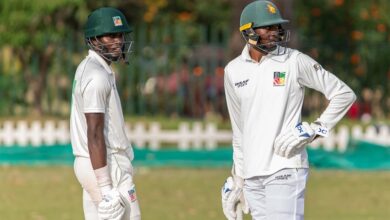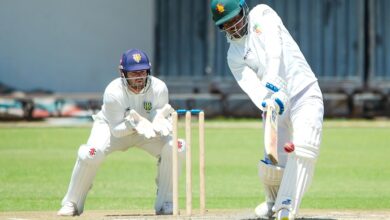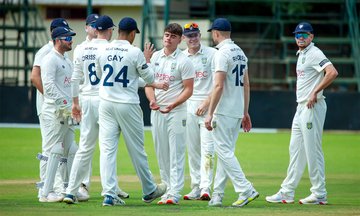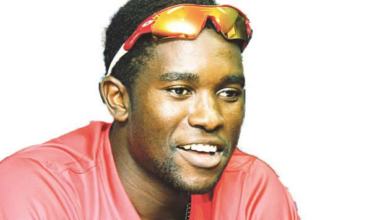Of Sport And Fitness Trainers
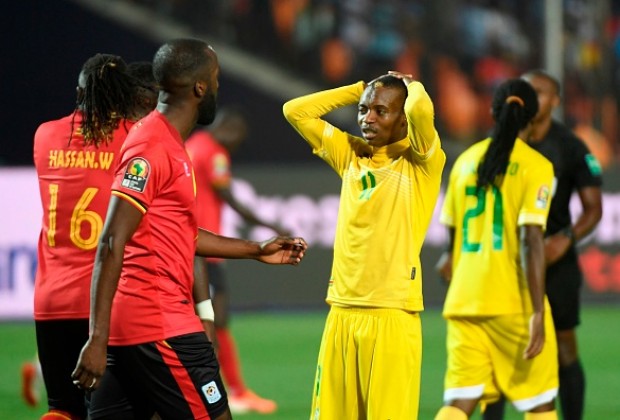
The general failure by Zimbabwean sportspersons and teams to win world championships has generated so much debate.
Many theories have been advanced as analysts, observers, and experts pit their wits to nail down why Zimbabwe perennially wears the ‘nearly man’ tag.
Of late, though, the question of fitness, or lack of it, among our sporting representatives is one that is refusing to go away.
The supposition is that local athletes are not fit to compete.
Empirical evidence also suggests that the country’s sports system has not placed much emphasis on physical health as a prerequisite or as part of the development process of any sportsperson
The cream of fitness instructors in the country has thus discovered that their biggest clientele springs from wellness aficionados instead of sport junkies.
But they warn that the situation is untenable for the local sport if it really intends to turn professional.
“A fitness trainer not only focusses on attaining an athlete’s highest physical capabilities but also strengthening the mental and spiritual part of their being as well,” argues Helen Costa- Sinclair, a reputable fitness specialist.
The former Annual National Sports Awards Sportsperson of The Year adds:
“Motivation, determination and perseverance is part of the journey that the trainer takes to create a machine of an athlete whether individuals or teams.”
That fitness trainers play the important role of mentors to players has been lost on administrators who have not sought to make their work easier.
Givemore Marume, the former Mr Zimbabwe bodybuilding champion and now a fitness instructor of note believe more should be done to upskill local trainers.
“We feel the authorities could do more in terms of knowing their constituencies, especially to know roles of who is doing what,” he urges.
“They should help by bringing in experts in the field to carry out refresher courses even quarterly to sharpen our trainers.”
Marume further says authorities should lead by example by having fitness facilities at places like parliament and other government institutions.
Already Marume finds himself dealing with non-sporting fitness enthusiasts.
He says fitness trainers are vital in the entire health delivery system.
“They have a broader role in the day to day physical performance of most people, for instance, mothers, fathers, general fitness to everyone, and performance training to most athletes.
“They teach the correct technic, posture, form, and frequency. With particular reference to sport,” Marume advises:
“Through a guided training regime, athletes develop confidence during their competition activities, guided training reduces the chance of getting injuries and athletes will develop performance strength and endurance.”
The former bodybuilder says athletes are also to be advised on correct meals they need to eat while preparing for their sporting event.
Online research noted recently that fitness trainers are some of society’s unsung heroes and found that some were not specialised, making it difficult to know their actual major.
“Personal trainers are some of the least celebrated players in the fitness industry. They play a big part in ensuring that many people meet their fitness goals.
For example, there are many players, aerobic instructors, floor instructors, and personal trainers who are critical in assisting people in gyms, whether home-based or commercial health clinics.
Personal trainers are supposed to be multi-dimensional because people who want assistance come from diverse backgrounds,” the report says.
“These people have different needs. Some people want to lose weight while others want to manage chronic illness. Others may be planning to have a baby while others want to manage advanced age. There are others who are injured.
“It is therefore important for a personal trainer to understand a number of issues around fitness and health in order to assist clients.”
The report maintains that personal training is a career where one needs to be very focused to help people meet their actual intended benefit.
Local fitness experts are united in calling for more attention to be accorded to their industry for the well-being of the nation’s sport and good health.
“Sports authorities in our beloved country fail to recognise the fundamental concepts of what athletes require,” Costa-Sinclair, a former world fitness champion continues.
“Different aesthetics in every sport are essential to creating good teams and sportspersons. Selecting qualified trainers to suit whatever sporting fraternity is critical for acquiring good results.
“Formulating budgets that assist and motivate trainers to work hard would be the start of a sporting chapter Zimbabwe has ever seen.”


